Meetup Front-End Coders Meetup at ACENSI Mauritius
Front-End Coders Mauritius is a community around front-end development based in Mauritius. The group organises monthly meetups free for anyone interested to attend. Meetup announcements are made on social media platforms and agenda is available on frontend.mu.
Last Saturday, the monthly Front-End Coders Meetup was organised at ACENSI Mauritius in Helvetia. The theme of the meetup was "Fancy New Tech". There were nine presentations on the frontend.mu meetup agenda and I thought to myself, that's going to be a long day meetup. However, the meetup format was different — more like lightning talks. ⚡
Also, instead of the usual presentation in conference rooms this time the presentations were done outside in a casual way. It was different but really nice — plenty of sunlight and no need for air conditioning.
I did not count but there seemed to be some thirty or so attendees.
Sandeep welcomed the attendees. He did a quick introduction about the Front-End Coders, like in every meetup, and thanked ACENSI Mauritius for sponsoring the venue.
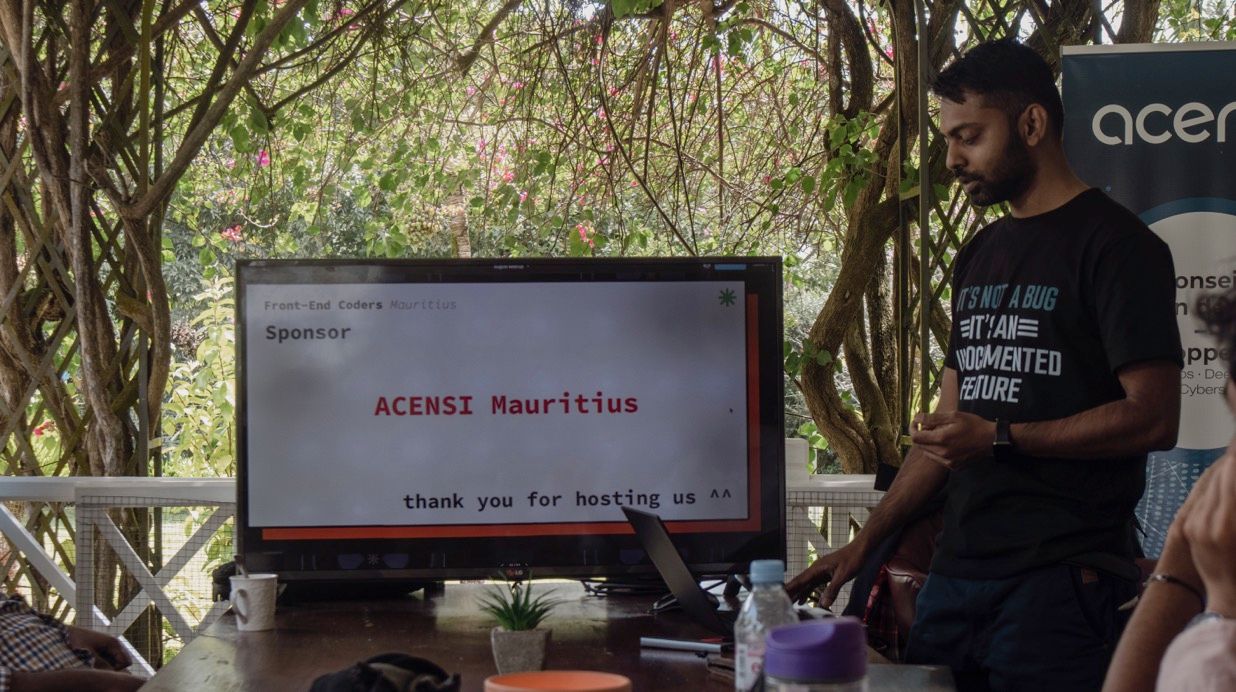
Right after, he invited Reena Seetohul, the Managing Director of ACENSI Mauritius to speak about the company and what they do.
Reena introduced herself, told us a little about her professional parcour and the setting up of ACENSI Mauritius HQ in Helvetia, in a beautiful colonial-era building. She gave some brief stats about the company and its global business.
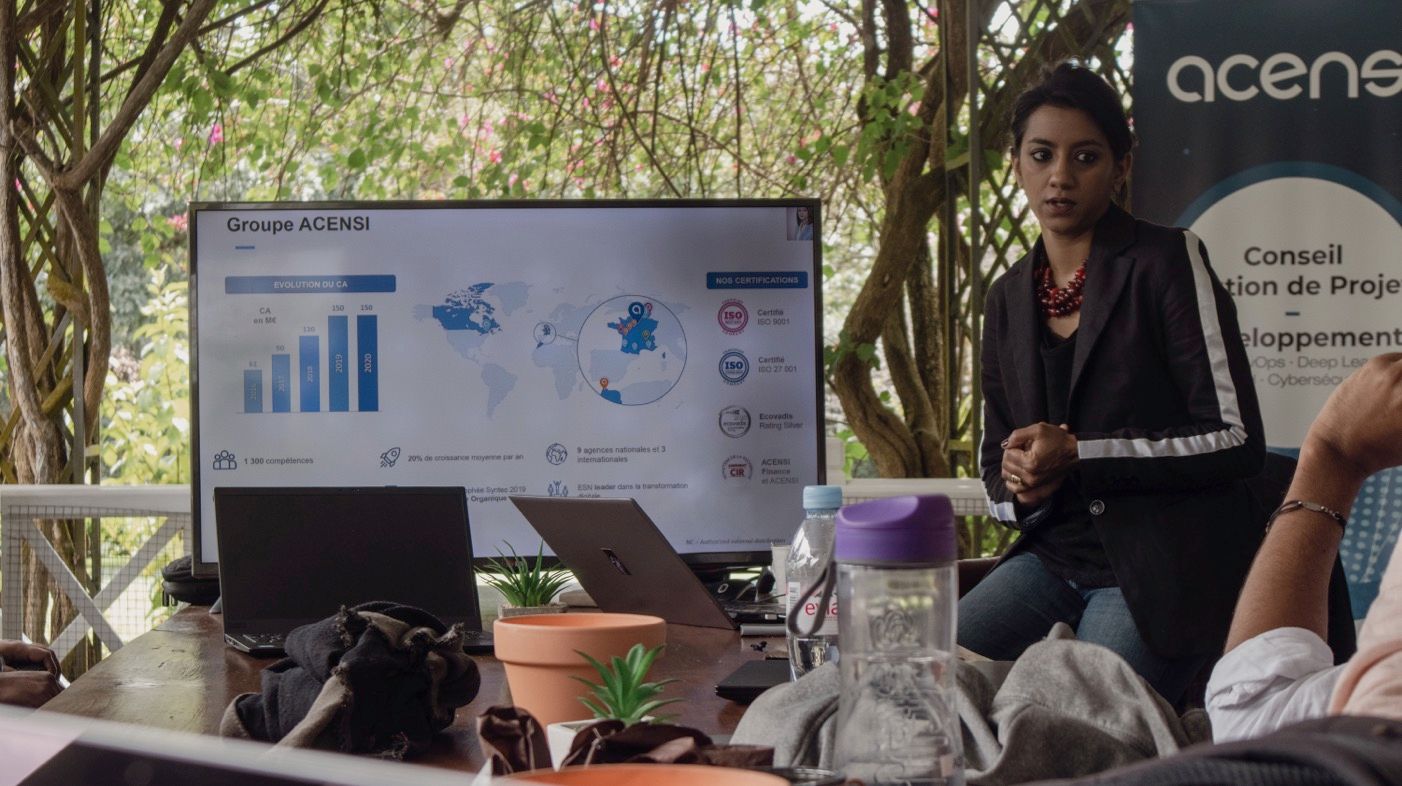
Reena spoke about the work culture at ACENSI Mauritius. They're currently recruiting and looking for various profiles in web development, data & analytics, administration and HR. Reach out to them on LinkedIn for more info.
Nadeem Nayeck, the Technical Director of ACENSI Mauritius, spoke about their technology stack. I was particularly glad to hear that he is an avid Gentoo user. 🐧
Lightning Talks ⚡
Bun – a fast all-in-one JavaScript runtime
Sandeep talked about Bun. I was like, aargh, one more JavaScript technology to know about. They keep popping week after week.
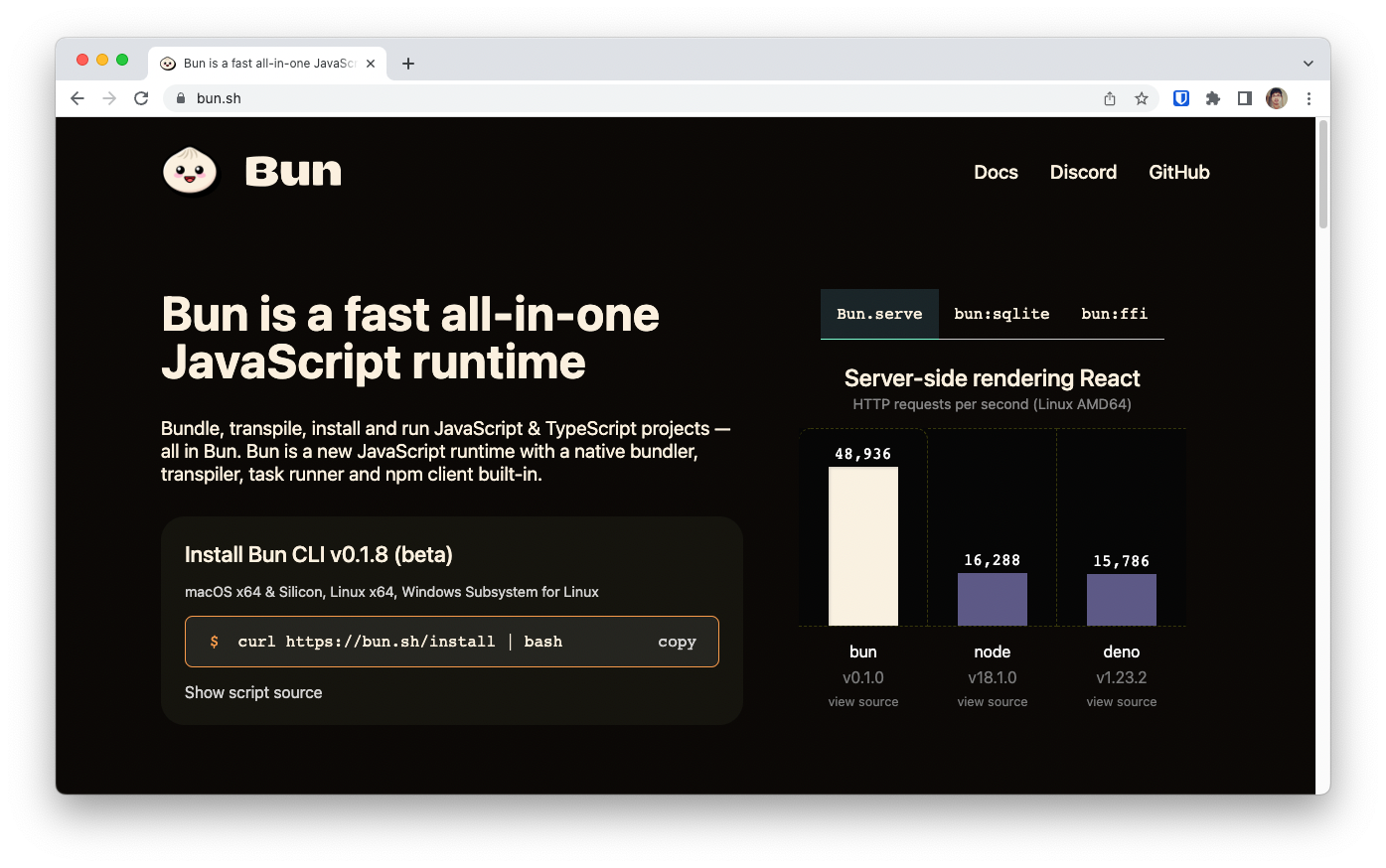
Sli.dev – presentation tool for developers
Mahima presented a new fancy tool that developers can use to make "fancy" presentations. It's called Slidev.
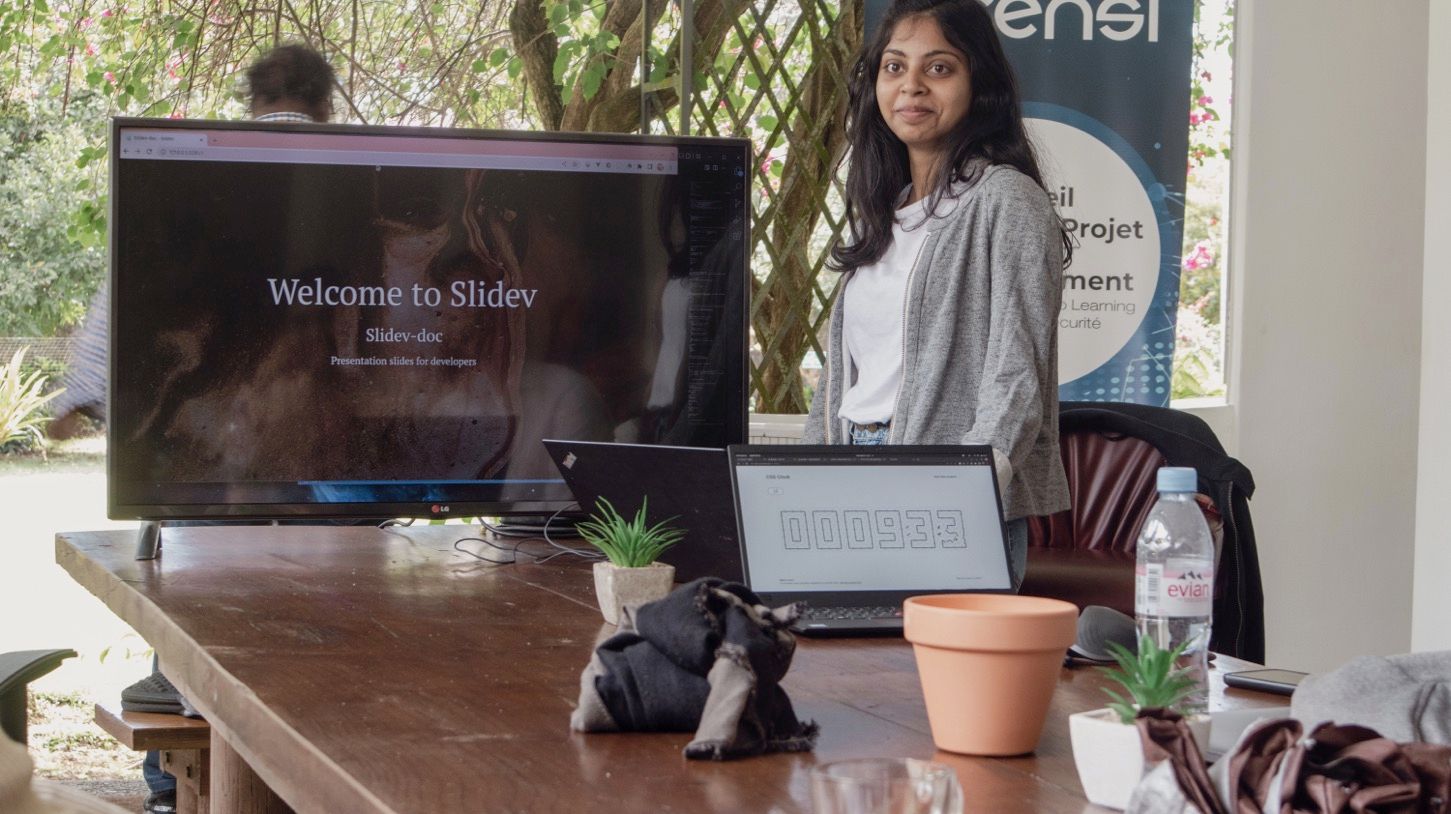
Unlike traditional WYSIWYG presentation software or webapps, Slidev provides developers a different way to create interactive presentations. It uses the Markdown format and the slides content are all in just one single plain text file. Thus, developers can use their current tools, such as their favourite text editor, and create presentations.
Web Assembly
The next presentation was by Arwin Neil Baichoo. He talked about WebAssembly. He showed how he could write a program in Rust, compile it to WebAssembly and then run it in the browser.
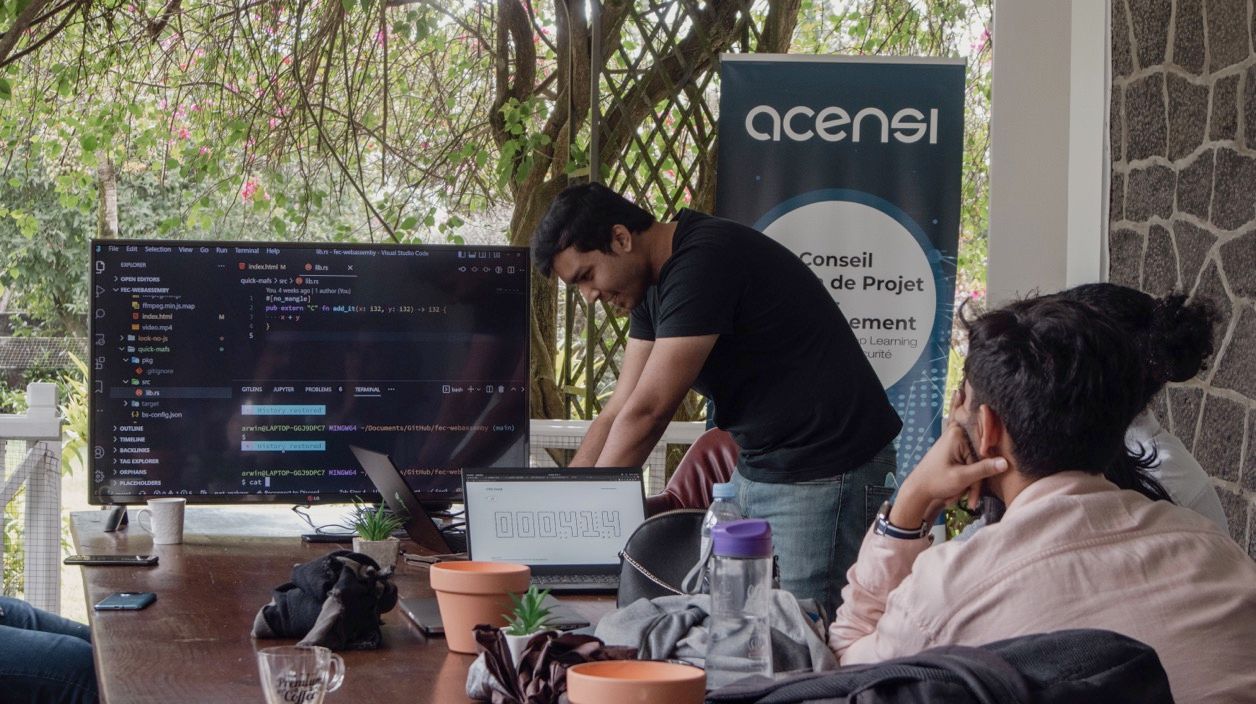
Neil spoke about the use cases of WebAssembly by popular applications, such as Figma.
He did a live demo, converting a video into GIF in the browser using ffmpeg.wasm. His demo page is available at arwinneil-ffmpgwasm.netlify.app.
Photogrammetry
Jordan spoke about Photogrammetry. He explained the art and science behind photogrammetry. The term was new to me. It took me a few mins to understand that it meant image stitching – a term I first learned in 2018 when Richard Brown, the former Chairman of the openSUSE Project, explained how he made panoramas from multiple photos that he took.
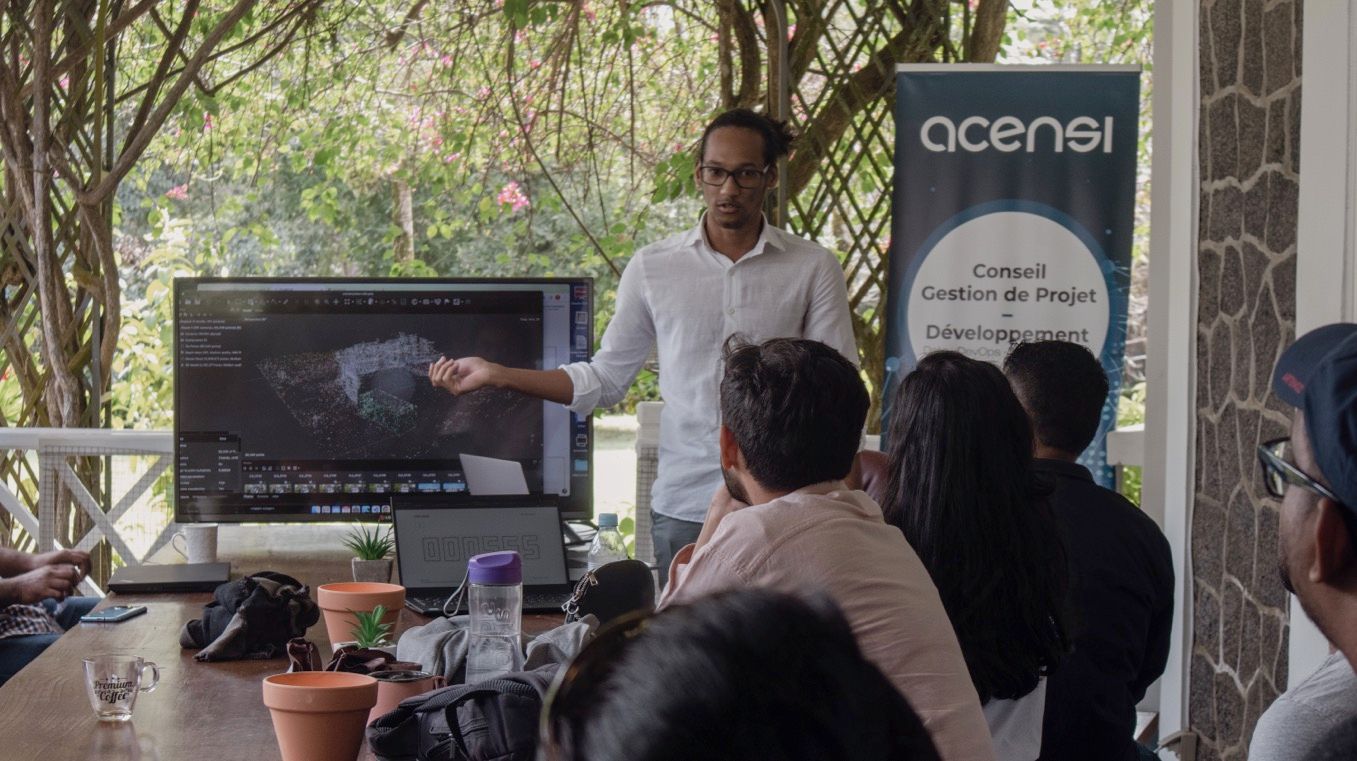
Jordan's passion for drone photography was obvious from his presentation.
Splade – the magic of Inertia.js with the simplicity of Blade
I was looking forward to this presentation when the meetup agenda was announced. Splade is a new project. Its first version was released a month ago only – to be precise on 22 July 2022, which makes the project one month old today. 👏 🎂 🥳
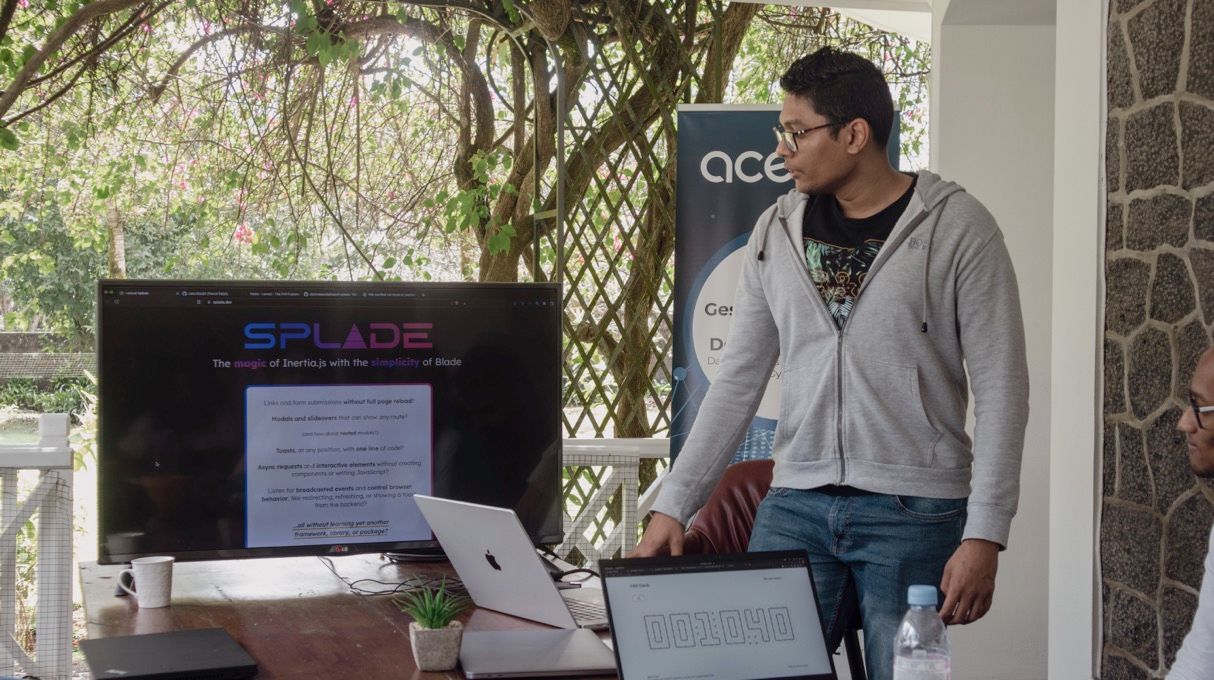
Splade is developed by Pascal Baljet. I had read some of his tweets in the past that contained valuable Laravel tips. I didn't keep on eye on his latest project though. That's why I was keen to learn more on Splade through Percy's presentation.
Percy spoke about Splade components. He did a few demos showing how one could create a modal without writing any JavaScript and not leaving the comfort of the Blade view. That's what I like. It was really akin to Laravel Livewire except that Livewire still relies on Laravel for routing, whereas with Splade one can create a Single-Page App (SPA) thanks to the underlying Vue.js.
Percy showed exactly that by using the Link component of Splade, which does not require a full page reload when fetching a new page.
<Link href="/">Home</Link>
<Link href="{{ route('contact') }}">Contact</Link>I took the above code example taken from the Splade documentation.
After his presentation, I had a chat with Percy to see whether he tried to publish the components and customise them. He said he did not try it but he quickly checked and indeed the Blade templates can be published.
php artisan vendor:publish --provider="ProtoneMedia\Splade\ServiceProvider"
The templates should be available in the /resources/views/vendor/splade directory.
Lunch 🍕
Lunch was fully sponsored by ACENSI Mauritius. We had some great pizzas from L'Ardoise restaurant and various cold drinks. Also, the coffee was awesome!
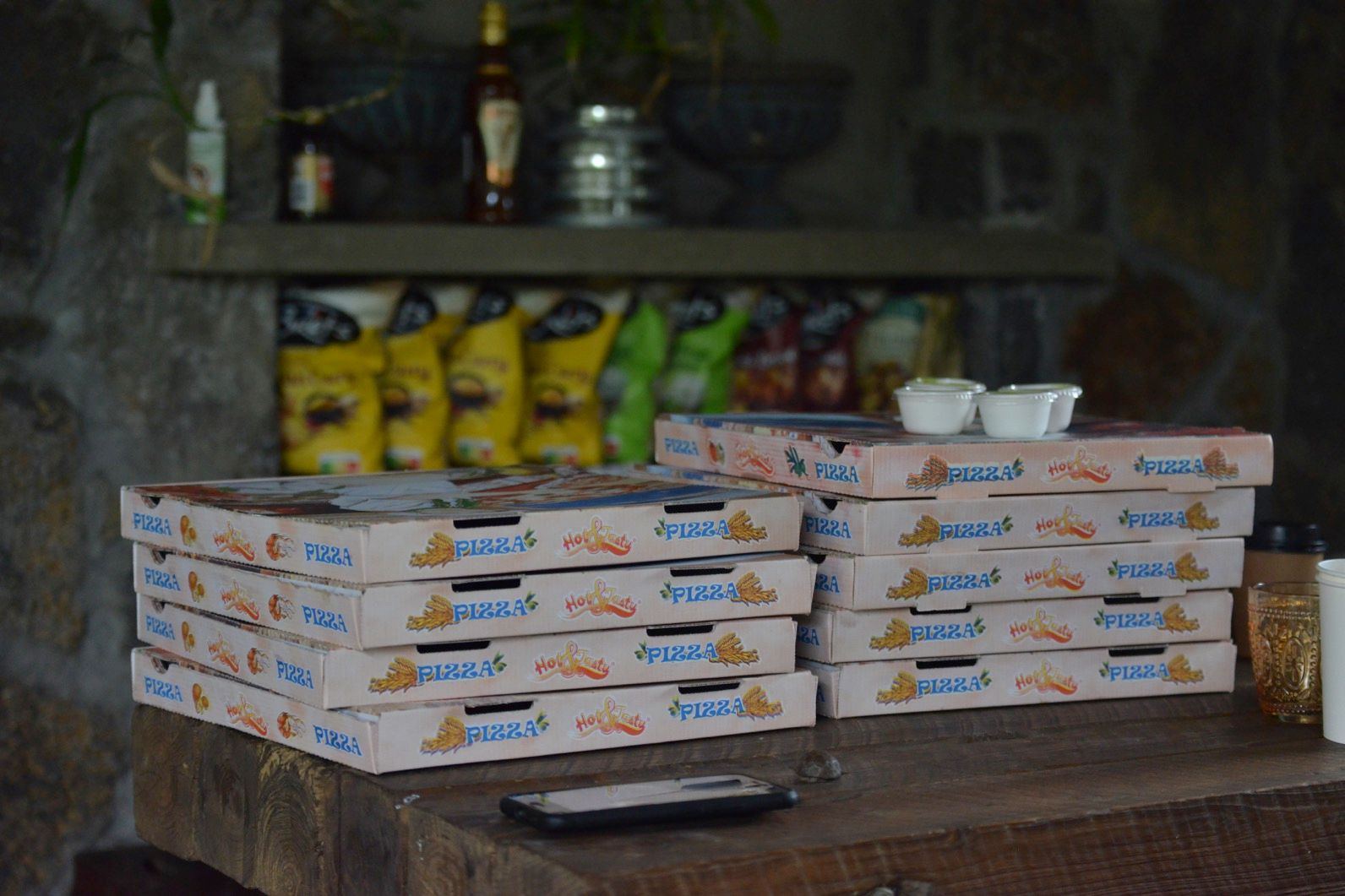
Contracting: Sharpening the edge to deliver
Abdur-Rahmaan Janhangeer, the founder of the Python Mauritius User Group, shared his experience about freelancing. He explained how to make a choice of tech based on information that we see on GitHub or GitLab. Should it be because a project has a lot of stars, a lot of forks, or what? It seems that the number of forks is considered a right assessment of a project's health.
He spoke about clients expectations and that we should not be ambiguous on time estimates. For example we cannot keep a client waiting for a year to deliver something.
Again, talking about tech, Abdur-Rahmaan's general advice is to learn a technology and learn it well. He says that it's good to know a lot of things but mastering one particular technology has its advantage in the industry.
Abdur-Rahmaan's presentation slides are available at GitHub.
Carbon Lang
Renghen spoke about the Carbon Language. This is a new programming language that aims to attract the C++ community of developers.
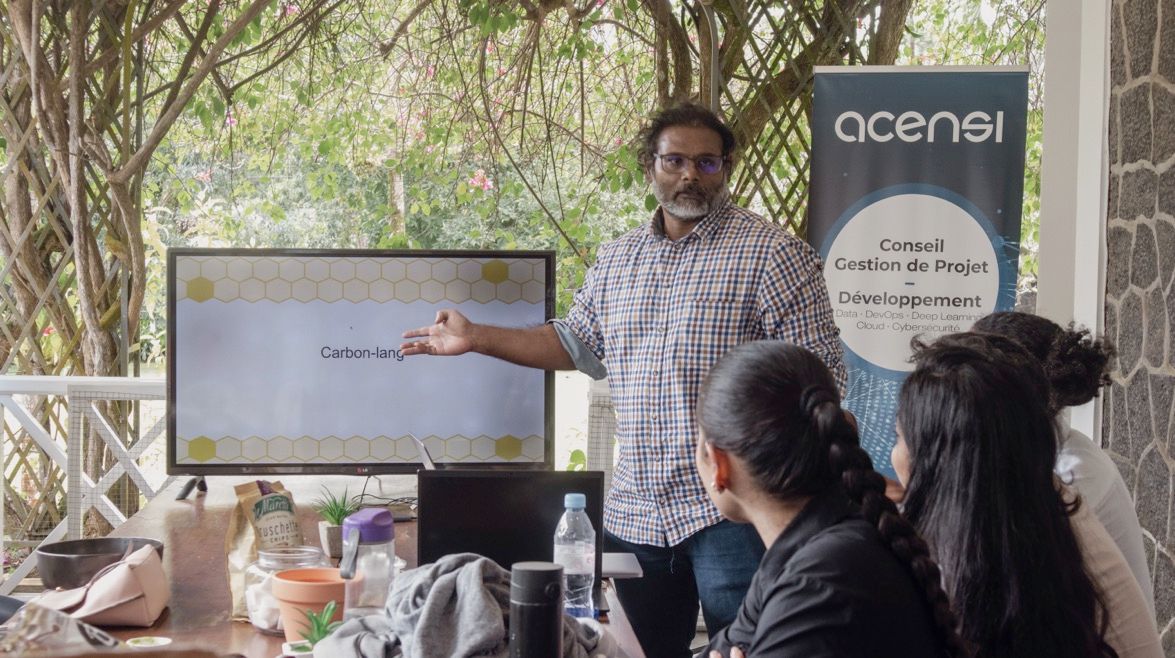
Renghen started his presentation with some history of C++ and things that are wrong about the programming language – like its broken type system, its over complexity, etc. Something that was apparent in his slides was that C++ was « soul sucking » which caused quite a bit of laugh.
He mentioned how C++ is regulated by the Standard C++ Foundation and there are downsides to how the organisation operates – like too many companies trying to push their agenda through.
Renghen said that Nim, D, Zig and Rust are better alternatives to C++.
Lastly, he spoke about Carbon Lang which he compares to what TypeScript is trying to do with JavaScript. He said that Carbon Lang is currently more a hype than real tech. Most of the working code may not work after a few commits. He also said that Carbon Lang is a Google technology, thus, its future is bleak.
Astro: fast websites next-gen island architecture
The last presentation was by Michaël Jules, a.k.a Mike. He spoke about Astro, a web framework that let's you build fast websites using tools that you already love. I didn't understand it at first. Is it a framework that let's you use other frameworks?
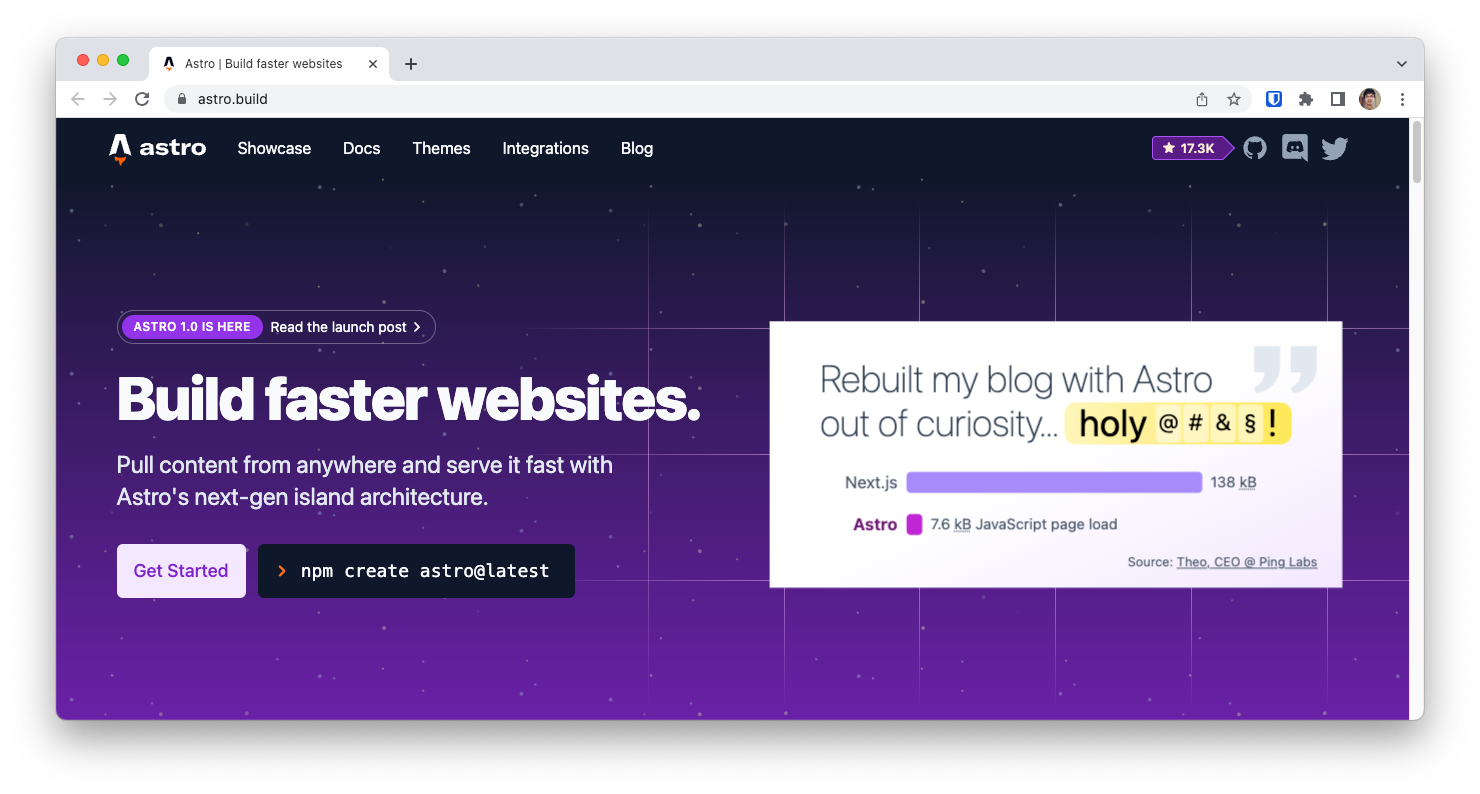
Then, Mike explained the concept behind. He explained about "island architecture", something I heard for the first time. The idea is to reduce the amount of JavaScript shipped on production. A lot of times these are unused JavaScript code.
Astro Islands (aka Component Islands) are a pattern of web architecture pioneered by Astro. The idea of “islands architecture” was first coined by Etsy’s frontend architect Katie Sylor-Miller in 2019, and expanded on in this post by Preact creator Jason Miller.
Astro generates every website with zero client-side JavaScript, by default. Use a frontend UI component built with React, Preact, Svelte, Vue, SolidJS, AlpineJS, or Lit and Astro will automatically render it to HTML ahead of time and then strip out all of the JavaScript. This keeps every site fast by default by removing all unused JavaScript from the page.
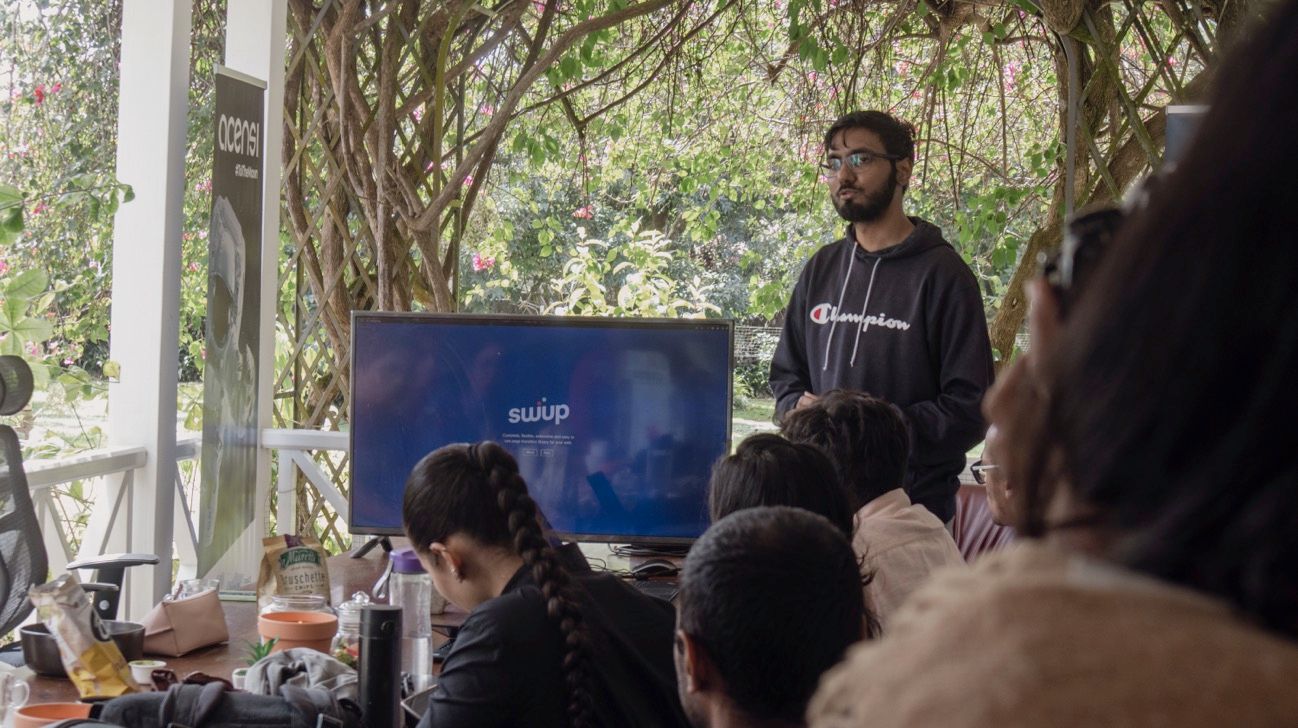
Meetup ended by 14h00. Many of us stayed around for another hour meeting everyone and continuing to chat about work, projects and the work/life/balance.